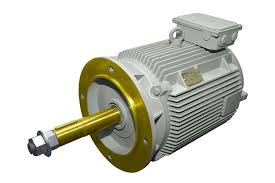MOTORS

"Applications of Cooling Tower Motors"
- Power Plants: Both conventional and renewable energy power plants often use cooling towers to dissipate heat from their processes.
- Industrial Manufacturing: Facilities that require cooling for various manufacturing processes, such as steel production, petrochemical refining, and chemical processing.
- HVAC (Heating, Ventilation, and Air Conditioning): Cooling towers are integral to large-scale HVAC systems in commercial buildings, hospitals, data centers, and shopping malls.
- Food and Beverage Industry: Cooling towers are used for refrigeration in food processing and beverage production facilities.
- Oil and Gas Industry: Cooling towers are essential for cooling equipment and processes in oil refineries and gas processing plants.
- Textile Industry: Cooling towers are used to maintain optimal temperatures in textile manufacturing processes.
"Performance and Reliability of Cooling Tower Motors"
- Reliability: Cooling tower motors must operate reliably under varying environmental conditions, including high humidity.
- Efficiency: Motors should be energy-efficient to minimize operational costs associated with running cooling towers continuously.
- Corrosion Resistance: Given the exposure to water and chemicals in cooling towers, motors need to be resistant to corrosion to ensure longevity and reliability.
- Power Output: Motors should provide sufficient power to drive fans that circulate air through the cooling tower, facilitating effective heat exchange.
- Temperature Tolerance: They must withstand elevated operating temperatures without compromising performance or longevity.
- Maintenance Requirements: Motors should have manageable maintenance needs to minimize downtime and operational disruptions.
